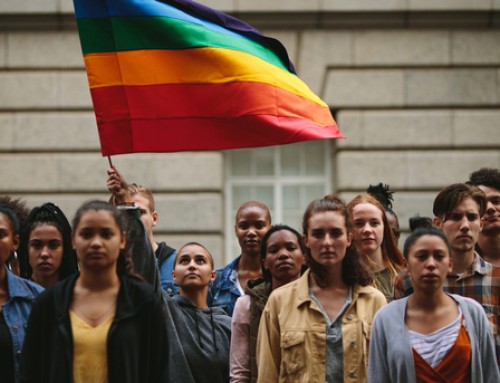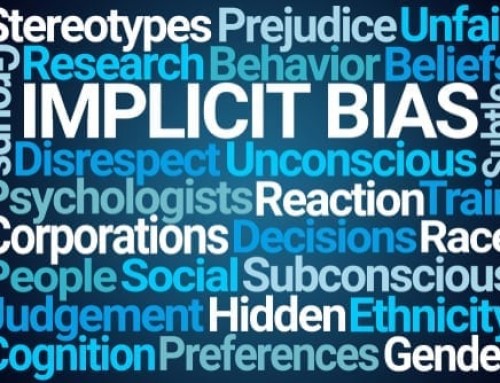There likely isn’t an employer in the United States that isn’t at least generally aware of the anti-discrimination laws that are designed to protect employees. The number of protected classes may soon be expanding. Recently, the U.S. Justice Department filed suit against North Carolina over NC’s controversial law restricting bathroom use by transgender people. In March 2016, the U.S. Equal Employment Opportunity Commission (EEOC) announced that it filed its first sex discrimination cases based on sexual orientation. Attorneys filed cases in the federal district courts in the Western District of Pennsylvania and in the District of Maryland, Baltimore Division. While these are not the first cases of their kind to be filed in the United States, they are the first to be filed by the EEOC, the federal agency charged with enforcing anti-discrimination laws.
All Men (and Women) Have Certain Unalienable Rights
The Civil Rights Act of 1964, signed into law by President Lyndon B. Johnson, prohibits discrimination on the basis of race, color, religion, national origin or sex and also makes it illegal to retaliate against people who seek relief or help others protect their rights under by the law. The Civil Rights Act of 1964 applies in public accommodations (hotels, restaurants, public transportation, retail stores, etc.) and in all programs funded by the federal government. Title VII created the EEOC and specifically called for equal treatment and opportunity in America’s workplaces. More federal laws have since come along to prevent discrimination on the basis of age, disability, genetic information, or family medical history, though claims on the basis of race discrimination and retaliation are the primary claims against employers.
Expanding Title VII Coverage to Protect LGBT
The EEOC is responsible for enforcing federal laws that make it illegal to discriminate in employment against a job applicant, employee or former employee if that person falls into a protected class. In 2012, the EEOC adopted a strategic enforcement plan with the intent to expand anti-discrimination protections to lesbian, gay, bisexual and transgender individuals under Title VII. The EEOC supported claims involving sexual orientation and gender identity that preceded the March 2016 filings. The EEOC is clear on its position of expanding discrimination on the basis of sex to gender identity and sexual orientation. Federal laws will apply regardless of state or local laws. This means that even if your state has a law that permits a business to refuse service to an individual based on that individual’s sexual orientation or gender identity, the EEOC can bring suit against the business for violating federal anti-discrimination laws.
Employer actions prohibited by Title VII include, but aren’t limited to:
- Not hiring an applicant because she or he is transgender
- Firing an employee because he or she is planning to or has made a gender transition
- Denying an employee equal access to a common restroom corresponding to the employee’s gender identity
- Harassing an employee because of a gender transition, such as intentionally and persistently failing to use the name and gender pronoun with which the employee identifies
- Denying an employee a promotion because he or she is gay or straight
- Discriminating in terms of privileges of employment, such as refusing to provide insurance coverage to a female worker’s legally married wife while providing insurance to a man’s legally married wife
- Harassing an employee or using derogatory terms based on the employee’s sexual orientation
LGBT Discrimination by the Numbers
In 2015, the EEOC received 1,412 charges that included allegations of sex discrimination related to sexual orientation and/or gender identity or transgender status. This increased by 28% of the number of claims in 2014. The EEOC resolved a total of 1,135 LGBT charges in 2015, recovered $3.3M in monetary relief for workers, and assisted in changing employer policies to prevent the recurrence of discrimination. This is an increase in resolutions by 34% and monetary recovery by 51%.
What Does This Mean for Business?
As evidenced by the US Justice Department suing North Carolina over its bathroom law requiring people to use restrooms that correspond with the gender on their birth certificates, federal agencies are ready, willing, and able to go to battle over the protection of the LGBT community when it comes to discrimination on the basis of sex. Additionally, recovery by LGBT employees for discrimination on the basis of sex is increasing at a rapid rate. Employers should have employee policies in place that address non-discrimination and should enforce those policies. Call an experienced employment attorney at GSB Law today to review your workplace policies, their enforcement, or conduct of your workers and for advice on how to handle the changing environment around discrimination on the basis of sex.






